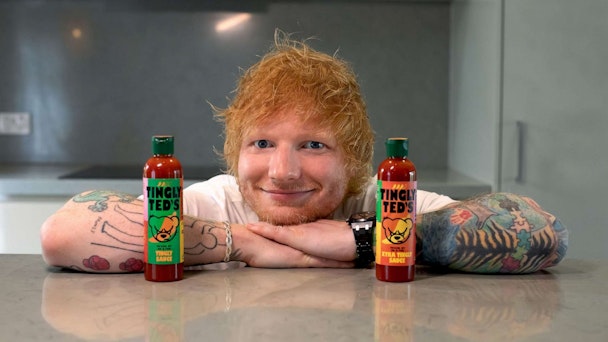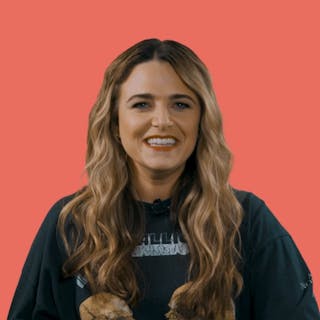Is being a brand owner a rite of passage for celebrities?
Sedge Beswick offers an academic categorization of celebrity brands. Kind of.

As a founder, investor and someone who has worked in or with the retail industry my entire career, it seems to me a tough time to launch a brand. Without being too doom and gloom, trade is down across the board for most businesses. And yet, brands keep launching. With eye-watering campaign budgets, too. The difference?
There’s a celebrity behind the brand.
This topic is big. And understanding how these brands begin (and sustain) is a job for another day. Today, let’s simply get our heads around the size of the opportunity. And to do this, I will split celebrity brands into three categories.
First, there are the accidental entrepreneurs. The early adopters that identified a gap in the market – and created the products they wanted but couldn’t find anywhere else. Gwyneth Paltrow’s GOOP falls into this one. It started as a newsletter for friends to share great recommendations. But it had huge traction, and her interests and access are what the well-compensated wellness community needed. And so, her $250m retail, media and experiential empire came to be.
Advertisement
Then there’s category two, the brand ambassador entrepreneurs. The #collab wunderkinds that know they’ve got a thing. And that other people want that thing, too. So they’ve bottled it. Even if the competitor landscape is entirely saturated already. Carrie Bradshaw was famous for her incredible (mostly Manolo Blanhik) heels in Sex and the City. And so, Sarah Jessica Parker launched a now very successful – albeit aesthetically familiar – SJP Collection. She also has a wine brand. But then – who doesn’t? More on that later.
Most beauty brands are collaborating, too… ‘The Rachel’ is the most famous haircut of all time. So it makes sense that Jennifer Anniston has a hair-care brand – LolaVie, in case you’re wondering. Hailey Bieber’s glazed donut skin, nails, eyes, and everything essentially breaks TikTok every season. And so Rhode Skin was born. And that’s the tip of the iceberg. One exception to this rule is Fenty Beauty by Rihanna. Because what she did was revolutionary – launching with foundation shades that, for the first time, catered to all skin tones. It was inclusivity done right, and with $100m in sales within its first 40 days – it seems the market would agree.
Last but not least, we’ve got group three. The opportunist entrepreneurs. The brand launches that are kind of left field. But genius nonetheless. KSI’s Prime drink is this. Cardi B’s Whipshots is this. Her vodka-spiked, canned whipped cream business was valued at $85M after 1.5 years of trading. Ed Sheeran has Tingly Teds hot sauce – the ketchup of hot sauces, if you will.
Advertisement
Shireen Hamdy, New Growth Area marketing manager at Kraft Heinz, International, said: “Tingly Ted’s was created in response to Ed’s dream to make the ‘ketchup of hot sauces,’ and we, of course, jumped at the chance to make it happen.”
Ed brought the vision, and we had the sauce know-how to bring it to life – it was the perfect hot sauce recipe and one that will help broaden our reach into the competitive hot sauce category, which is expected to grow at a rate of 6.3% to $5.4bn in 2027.
Ed’s superstar status helped it “launch with impact.” Ed and Ted have more to offer in the future, Heinz assured.
Meanwhile, celebrity wine (and increasingly, Tequila) brands also fall into category three – though I’m not convinced of their actual success in terms of sales. These celebrities are super rich. They’ve bought a vineyard. And now they’re going to sell their wares to us normal-don’t-have-a-wine- cellar-folks – the people that buy wine from a supermarket. Usually on offer or as part of a depressing meal deal. Do we need Brad Pitt’s wine? No. Will you buy it? Probably not. Because there’s also Kylie, there’s Avaline (Cameron Diaz and Katherine Power), Della Vite by the Delevingne sisters. Somewhat surprisingly, there’s Maison No. 9 by Post Malone. LVE wines is John Legend’s. Famed for their taste in wine? Absolutely not. The exception to the rule here is Lisa Vanderpump from The Real Housewives of Beverly Hills. The queen of rosé (and manipulation, as the storylines would have it) is rarely seen without an icy glass of wine in hand. So Vanderpump Wines truly makes sense. She falls into category two for me.
Suggested newsletters for you
The obvious benefits of creating or founding a celebrity brand are the immediate, inbuilt audience and potential customer base it brings. For a marketing department, it certainly makes the launch campaign a little more straightforward. Presenter and brand founder Frankie Bridge, who originally found fame in The Saturdays, explains: “I have been creating and sharing my looks on social media for years, and was forever getting those ‘where to buy’ and ‘can I have a link?’ comments. I knew my followers, what they wanted and what they were interested in buying, so it felt like a really natural next step to launch FW Bridge, my own clothing line. It’s great to have my own business and to use my social channels to grow awareness”.
Similarly, Rochelle Humes has children’s lifestyle brand My Little Coco, RH Talent Agency, and Cloudcha Matcha – you guessed it – a new matcha brand. Influencer Grace Beverly has TALA, which, when launching the brand’s AW23 outerwear collection, did £1m in sales in just one hour. In fake tan land, Molly Mae has Filter and Vogue Williams has Bare by Vogue. The latter, which my Celtic-skinned friends assure me, is the best on the market. So you see, the list is endless.
Creating a brand isn’t just about finding a gap in the market and or seizing an opportunity. Or giving the people what they want. For a celebrity, it’s also about diversifying their careers. Opening up additional revenue streams – a more passive, consistent income not reliant on one-off project fees and deals. And for the clever investor types like Ryan Reynolds – a potentially huge payout if the brand is sold further down the line.
But that’s not the only way big names secure alternative, future incomes. We’re now seeing talent become investors and – because they don’t tend to do things by halves – creating their own venture capital funds. That is precisely what YouTubers the Sidemen have done with Upside VC. And what vlogger Caspar Lee has built with Creator Ventures. The cynical among us might see this as them securing their slot on Steven’s Diary of a CEO podcast. Finance bros are cool now. But this talent has money. And an incredible understanding of the zeitgeist. There’s definitely something in it.
We’re all familiar with the concept of ‘this meeting could have been an email.’ And now, we might have reached the peak of ‘this celebrity brand could have been a hobby.’ But one thing I’m certain of is the enduring power of celebrity and the very real impact influence and reach can have on sales. Which brands will survive? Just like with influencer partnerships, it will be the ones that have meaningful, insights-driven reasons to be, that have archetypal alignment between the product and the person, and feel absolutely authentic.

